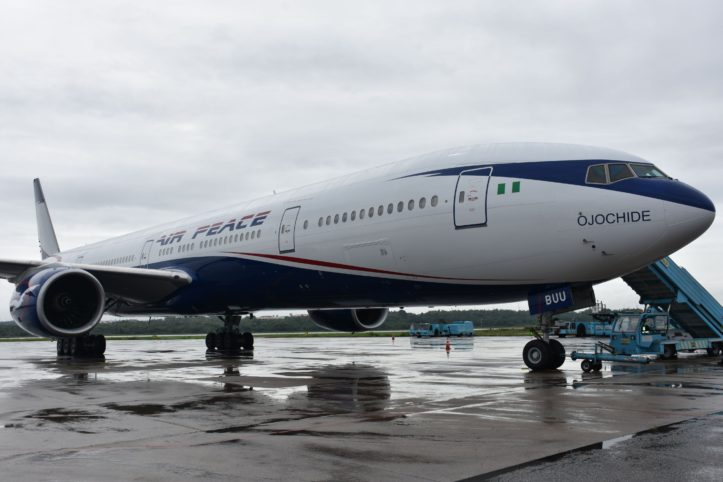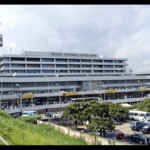
Despite the introduction and ratification of the Single African Air Transport Market in January 2018, African airlines are yet to take advantage of the treaty.
For over 20 years, international carriers from Europe and Asia have dominated the Africa airspace.
It started when national carriers in Africa began to die. Such carriers like the Nigeria Airways, Air Afrique, Ghana Airways and so many others, that went under years after they were whelped at the cusp of independence.
Although there still exists national airlines and privately owned carriers in Africa but many of them have not carved strong niches to dominate the African market; instead, such mega carriers like Emirates, Turkish Airlines, British Airways, Air France, KLM, Lufthansa, Qatar Airways, Etihad and many others still dominate African airspace.
Despite the generally poor performance of state-owned airlines in Africa, they are the ones still thriving in the region, just as the major international airlines that have eroded the African travel market are still state owned or public quoted companies.
Aeropolitics
Industry experts are of the opinion that African airlines are kept at the fringe of the air travel market both in Africa and in the world by aero-politics, which global alliances, international aviation organisations and advanced nations use to squeeze out competitors.
Also, the experts said African nations still attach to the apron string of their colonial masters are yet to challenge the dominance of these mega carriers through policies.
For example, for several years, Nigerian airlines have been kept away from some lucrative markets through aero-politics and Nigerian government has not fought back, using the principle of reciprocity. In many French speaking African nations, Air France is still the dominant carrier and any effort to establish a national airline by these countries is spearheaded by Air France, which build such airlines as feeder carriers that bring passengers to it from African state capitals for onward flight to its operational hub in Paris. Experts have noted that even when airlines from African nations are allowed to operate to those major European cities, it is more of tokenism than given them equal opportunity to compete.
Industry observers also cited corruption as one of the major reasons why foreign airlines are dominating Africa.
Many African countries do not protect their own airlines and their own market but designate foreign carriers to dominate their airspace. Government officials allegedly collect bribes from major global airlines and designate them as major operators in their countries. Industry stakeholders cited Nigeria as a good example of countries where government officials designate foreign carriers to dominate their market and also squeeze out local airlines that are not supported or protected by government.
Cooperation
Industry observers also said African countries are not cooperating among themselves to build strong air transport market in the region.
They show greater allegiance to colonial masters and also use policies to obstruct the growth of African carriers by opening the market to international carriers and closing the market for fellow African airlines.
The Chief Operating Officer of Ethiopia Airlines, Mesfin Tasew recently told THISDAY, “You might have heard from different sources that today around 80 percent of African air traffic is carried by non-African carries.
“Hence, Africa shares the remaining 20 percent. So, there is a big market for African airlines. We have to take our reasonable share from this market. We can only take this share when Africans partner. We are brothers as African citizens and that is what we are encouraging.
“Unfortunately, many new starter African airlines didn’t succeed. The problem is internal capacity, capacity in leadership and deployment of resources.
“We don’t have the right visions individually. We have to cooperate on financial front, on maintenance, technical know-how and developing human resources among others,” he said.
Tasew, noted that one of the critical problems for African airlines is that they don’t have enough trained aviation professionals.
“So, we have to cooperate. Unfortunately, we didn’t succeed for different reasons.
“One is lack of leadership, from African government and airline operators. Air transport business requires discipline in leadership and commitment. If you don’t control your costs, you cannot succeed.
“If you cannot develop long- term strategy, you cannot succeed. So, we have to help each other and government has to play an active role in facilitating development of airlines in Africa,” he also said.
Also, the Managing Director, Ethiopia Airlines International Services, Esayas WoldeMariam Hailu, in a recent interview with THISDAY, urged African airlines to see the dominance of mega carriers in the world as a serious threat as it is impacting on all the airlines, not only one or two airlines in the continent; therefore, the regional carriers have to integrate their transport policies and strategies so that they can jointly work together through different code sharing strategies, as well as cooperation’s and alliances.
“African countries improving their air transport share should be central at the continental agenda for Africans.
“By doing so, they can maximise their existence in the sky of Africa. Otherwise, the existence of Africans in their own sky will be a fable if things continue this way.
“First, African governments should bring this serious agenda to their conferences, meetings, consultations and should device short and long term plans to tackle the challenges.
“There should be experience sharing and bench marking good aviation models. After that, adapting the best-calculated practice to their reality and implementing them can be a solution,” Hailu said.
Ironically, mega carriers are still expanding their markets in Africa. Emirates and Turkish Airlines are still opening new destinations in the continent.
According to CAPA (Centre for Asia Pacific Aviation), a leading provider of independent aviation market intelligence and AOG (Office of the Auditor General of Canada), the outlook of the African international market in 2025 indicates that African airlines would account for less than 40 per cent of the market.
Air France-KLM will remain the largest airline group in the Africa-Europe market while Turkish Airlines will remain the second largest and the fastest growing carrier that will dominate the region’s market.
SAATM
The Single Africa Air Transport Market (SAATM), which opened the airspace to the 26 member countries that signed into the policy after it was ratified by the African Union early last year, is yet to become a rallying point for African carriers, as the tendency by some member country to protect their local market for their indigenous carriers has eroded the major objective of the treaty, which is seamless movement of African registered airlines from one African country to another.
As observed earlier, some countries in Africa prefer to open their airspace to mega carriers and impinge on the movement of African airlines to the destinations in their countries.
“As an extension to the spirit of colonialism, which many dub neo colonialism, airlines like Air France still has dominance in many French speaking African countries.
Nigerian carriers have also suffered such obstruction by some African nations, which use hostile policies and outrageous charges to discourage Nigerian airlines from operating in their countries.
In West Africa Ghana, Senegal Cote d’ Ivoire discourage Nigerian carriers with high charges and taxes, which they don’t levy their own airlines and when they come to Nigeria, which is the biggest market in West and Central Africa, they are not charged half as much as they charge Nigerian airlines. So this gives the other airlines operating in the West Coast the advantage to sell tickets at lower fares. But for Nigerian airlines to offset their operation costs in their operation to destinations like Accra, Doula, Abidjan, Dakar, Luanda, and Banjul, they charge relatively higher fares. High fares obviously would discourage passengers who would prefer to fly African World Airlines (AWA), Air Cote d’Ivoire, Asky and others that offer lower fares. This has drastically affected the load factor of Nigerian operators.

Talking about SAATM, the International Air Transport Association (IATA) Vice President, Africa, Raphael Kuuchi said recently, “There is also a completely ‘made in Africa’ policy initiative which we are wholeheartedly supporting.
“It is such a pain to get around this continent by any means of transport, including air. This inefficiency has an economic cost.
“The low density of the African intra-continental network makes it impossible to realise the potential benefits of a connected African economy. Today, intra-African travel is 45 percent more expensive than world averages.
Kuuchi, who spoke as IATA’s Special Envoy on Aero-Political Affairs during a recent African Airline Association’s stakeholder’s convention in Mauritius also noted that countries that have signed up to the SAATM agreement need to follow promises with action.
“History has shown that opening markets leads to rapid advances in connectivity. In the case of Africa, it must be accompanied with a reduction in onerous visa requirements. We are confident that the results of 28 states that have signed on to SAATM will make a powerful case for the remaining 27 to come on board quickly,” said Kuuchi.
In all, he said SAATM was yet to provide the hope that African airlines will work together to capture significant part of the region’s market dominated by world’s mega carriers.
Protecting Local Markets
Also speaking about Africa’s air transport market and SAATM, the IATA Director-General and CEO Alexandre de Juniac in a recent interview explained that some African states are not eager to open their airspace for African airlines; rather, they are protecting their local markets for their own airlines.
He stressed that with such attitude, African carriers would not grow and the region’s market would continue to be dominated by international carriers.
“I think they are similar to those of the Yamoussoukro Declaration. First, it is political reason because you are touching a subject that has to do with sovereignty.
“You have economic reasons, start-up airlines are not comfortable with the incumbent airlines, sometimes; but also governments want to protect their airspace and their operators against what they perceive as threatening competition from more established carriers.
“And thirdly, for those countries that don’t have operators (their own airlines), they are sometimes hesitant to open their borders because they think that it will kill any initiative to build a national or flag carrier.
“So the reasons why SAATM is yet to be fully embraced include protection, political control and sovereignty issues.”
De Junaic said this has affected airlines in Africa, stunting their growth and making them very weak, expressing the hope that IATA would push further on collaboration.
“We think that any initiative that is favourable to opening the sky is generally favourable for airlines. It generates traffic and usually it allows the creation of new airlines and the expansion of existing airlines, then it brings prosperity, GDP, jobs, and so many other things.
“What some countries are doing is politically motivated and the political situation of each country is different. We have seen that in Europe,” he added.






